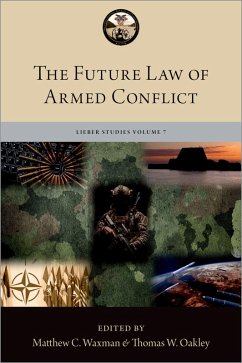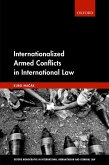Warfare is changing - and rapidly. New technologies, new geopolitical alignments, new interests and vulnerabilities, and other developments are changing how, why, and by whom conflict will be waged. Just as militaries must plan ahead for an environment in which threats, alliances, capabilities, and even the domains in which they fight will differ from today, they must plan for international legal constraints that may differ, too. This volume considers how law and institutions for creating, interpreting, and enforcing it might look two decades ahead - as well as what opportunities may exist to influence it in that time. Such assessment is important as the U.S. and other governments plan for future warfare. It is also important as they formulate strategies for influencing the development of law to better serve security, humanitarian, and other interests. This volume examines not just specific questions, such as how might a particular technology require adaptive interpretation of existing law, but also grand ones, such as whether law is capable at all of keeping up with these changes.
Dieser Download kann aus rechtlichen Gründen nur mit Rechnungsadresse in A, B, BG, CY, CZ, D, DK, EW, E, FIN, F, GR, HR, H, IRL, I, LT, L, LR, M, NL, PL, P, R, S, SLO, SK ausgeliefert werden.









